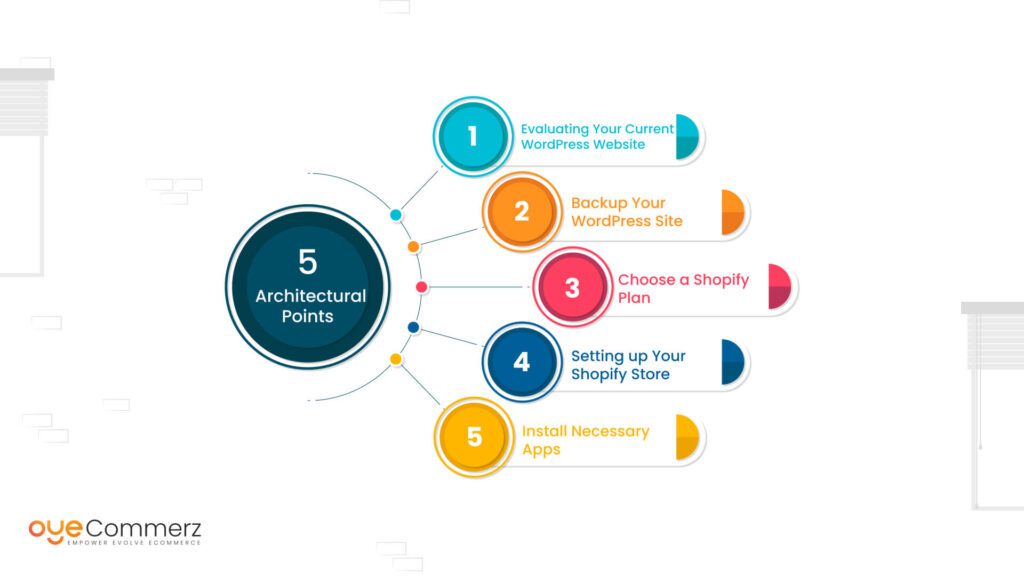In the ever-evolving world of eCommerce, choosing the optimal platform is essential for your company’s success. If you’re currently using WP and considering a migration to an alternative, you’re not by yourself. Many businesses are switching to leverage Shopify’s robust features, simplicity, and expandability. This guide will take you through the journey of migrating from WP to this platform smoothly, making sure that you realize your online retail potential.
Why Transition from WP to this platform?
Before starting the migration process, it’s crucial to know why this transition can be helpful for your digital storefront:
User-Friendly Interface: Shopify provides an user-friendly interface that simplifies store handling, making it easier for non-technical users.
Growth Potential: As your brand expands, Shopify can support increased traffic and transactions without affecting performance.
Integrated Features: Shopify comes with pre-installed features for search engine optimization, analytics, payment handling, and more, minimizing the necessity for multiple plugins.
Enhanced Security: With Shopify, you get access to robust security features that safeguard confidential customer information.
Steps for a Smooth Migration
Migrating your eCommerce site from WordPress to Shopify involves several phases.
Here’s the way to facilitate a hassle-free transition:
Outline Your Migration Plan
Begin by outlining your migration blueprint. Decide on which aspects of your existing site you want to migrate, such as:
Item details
User details
Purchase logs
Posts
Choose the Appropriate Migration Package
Based on your requirements, choose a migration package that suits your eCommerce goals. Migration experts offers multiple options:
Starter Package: Suitable for compact stores with minimal products.
Regular Option: Appropriate for growing businesses with moderate requirements.
Premium Migration Package: Perfect for high-volume stores needing broad customization.
Save Your Content
Prior to starting the migration, make sure that you have a full copy of your WP site. This task is essential in case anything goes wrong during the move.
Retrieve Your Data from WP
Use tools or alternative solutions to transfer key information from your WordPress site:
Items
Users
Orders
Blog posts
Import Data into Shopify
When you have your content extracted, use Shopify’s built-in features or external apps to upload your data into your Shopify store. Confirm that all information is properly formatted and arranged.
Customize Your Shopify Platform
Following migrating data, adjust your Shopify site’s theme to reflect with your business goals. Think about hiring a specialist if you require advanced customization.
Establish TransactionOptions and Logistics
Set up billing solutions and delivery choices in Shopify to create a smooth transaction experience for customers.
Implement SEO Standards
To preserve your SEO performance during the transition:
Set up 301 URL mappings from previous URLs to updated ones.
Refresh descriptions.
Enhance Shopify platform setup images and text for search engines.
Review Your Updated Shop
Prior to publishing, completely test your migrated platform. Identify any broken links, transaction errors, or missing data.
Launch Your Platform
After everything is in ready, it’s time to publish! Inform the change to your clients and motivate them to experience the updated capabilities of your Shopify store.
Post-Migration Assistance
Post publishing your updated store, ongoing support is essential. Consider engaging experts who can help with:
Site maintenance
Promotional campaigns
Improvement strategies
Conclusion
Migrating from WP to this platform can be a transformative move for your eCommerce. Shopify data backup tools By using this guide and working with professional services like those offered by dedicated providers, you can ensure a smooth transition that boosts your digital storefront. Accept the opportunity and unlock the advantages of Shopify today!
